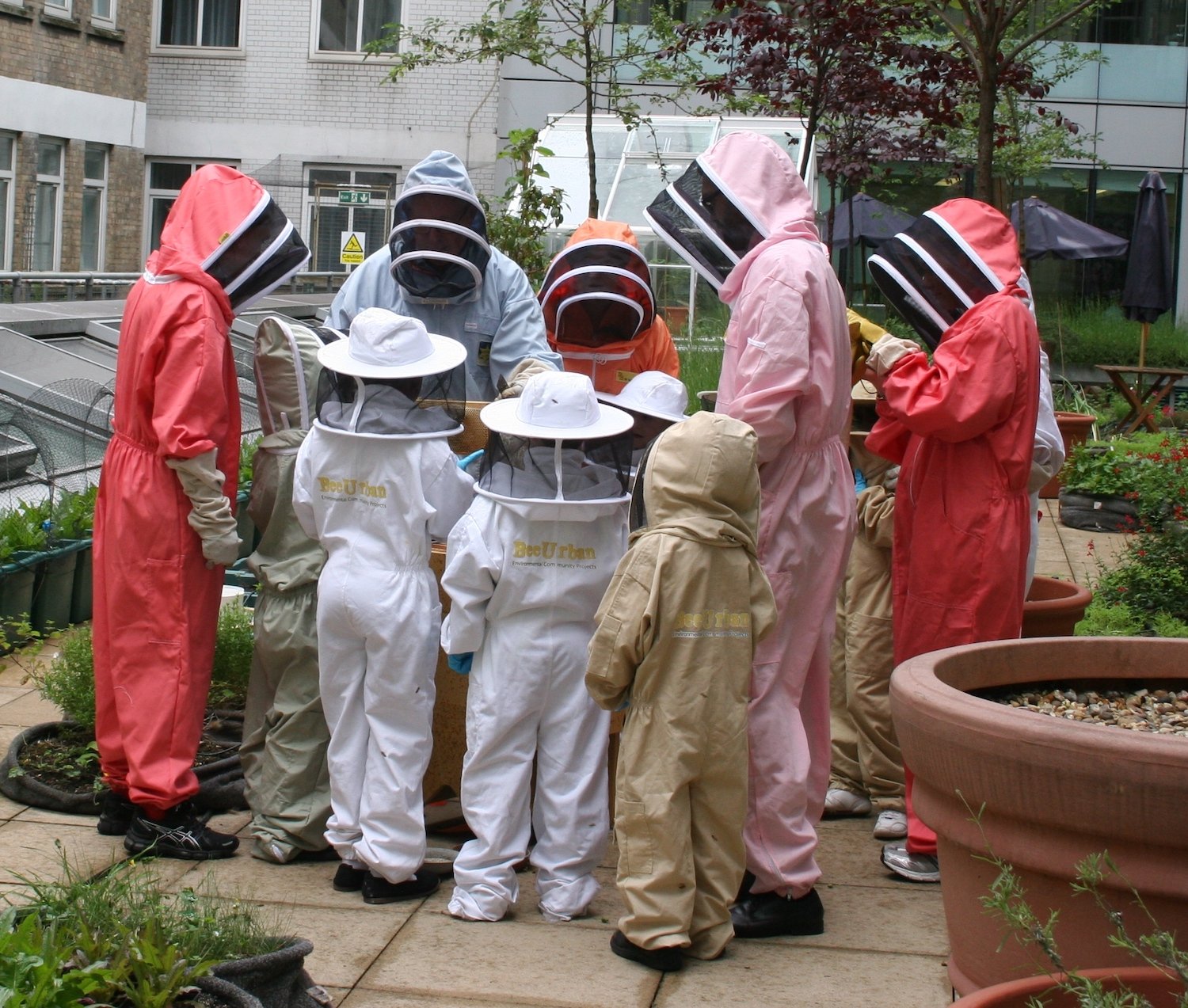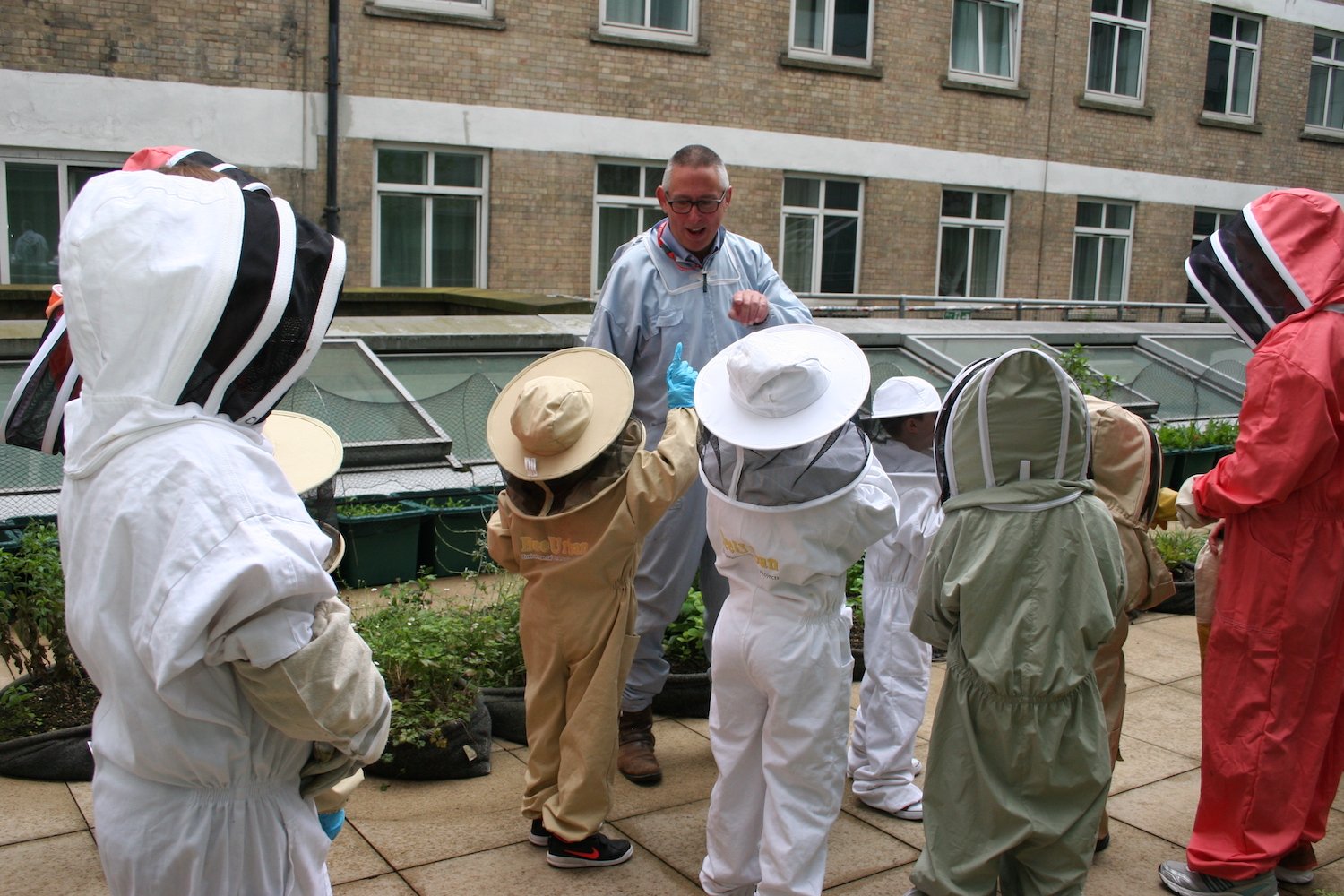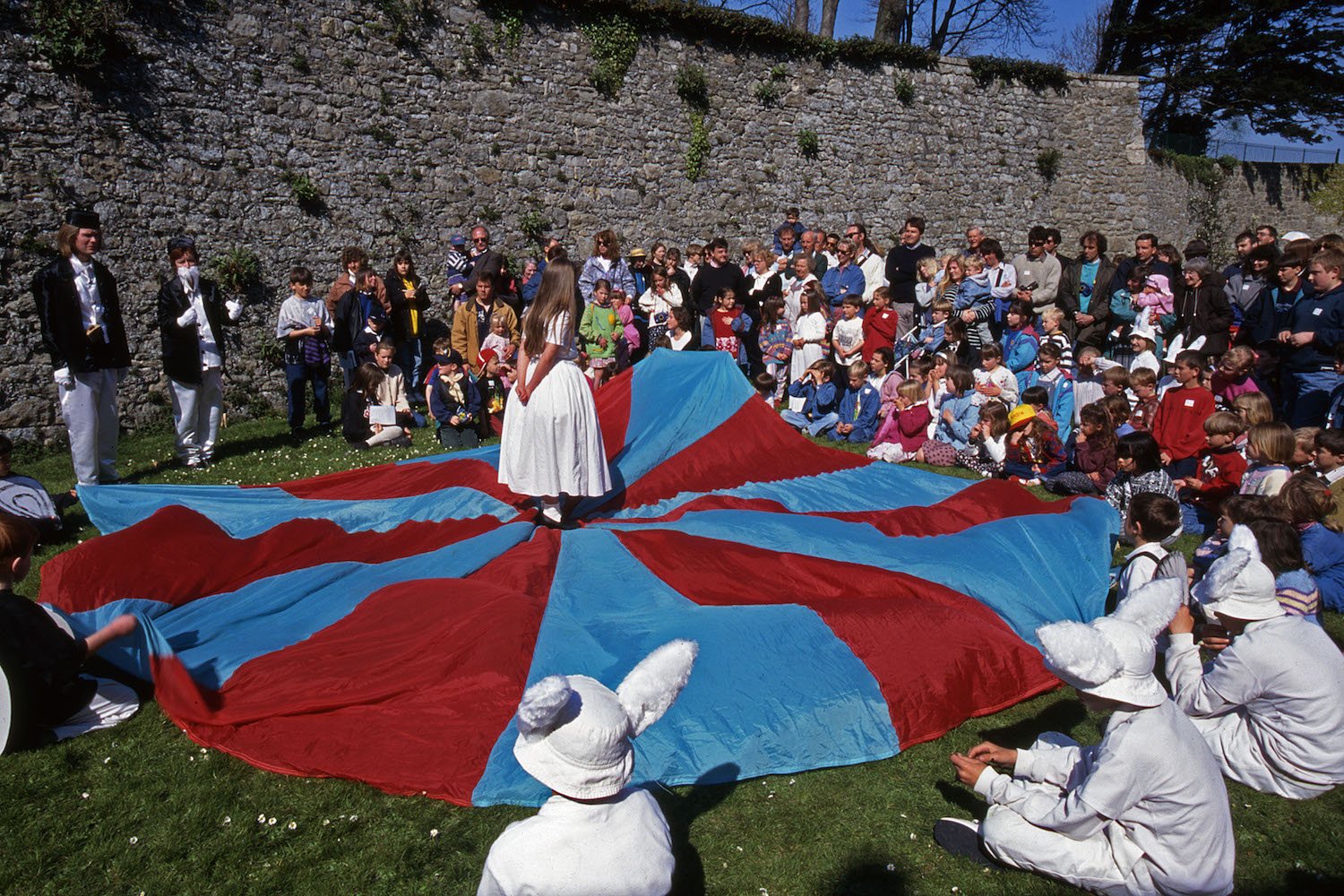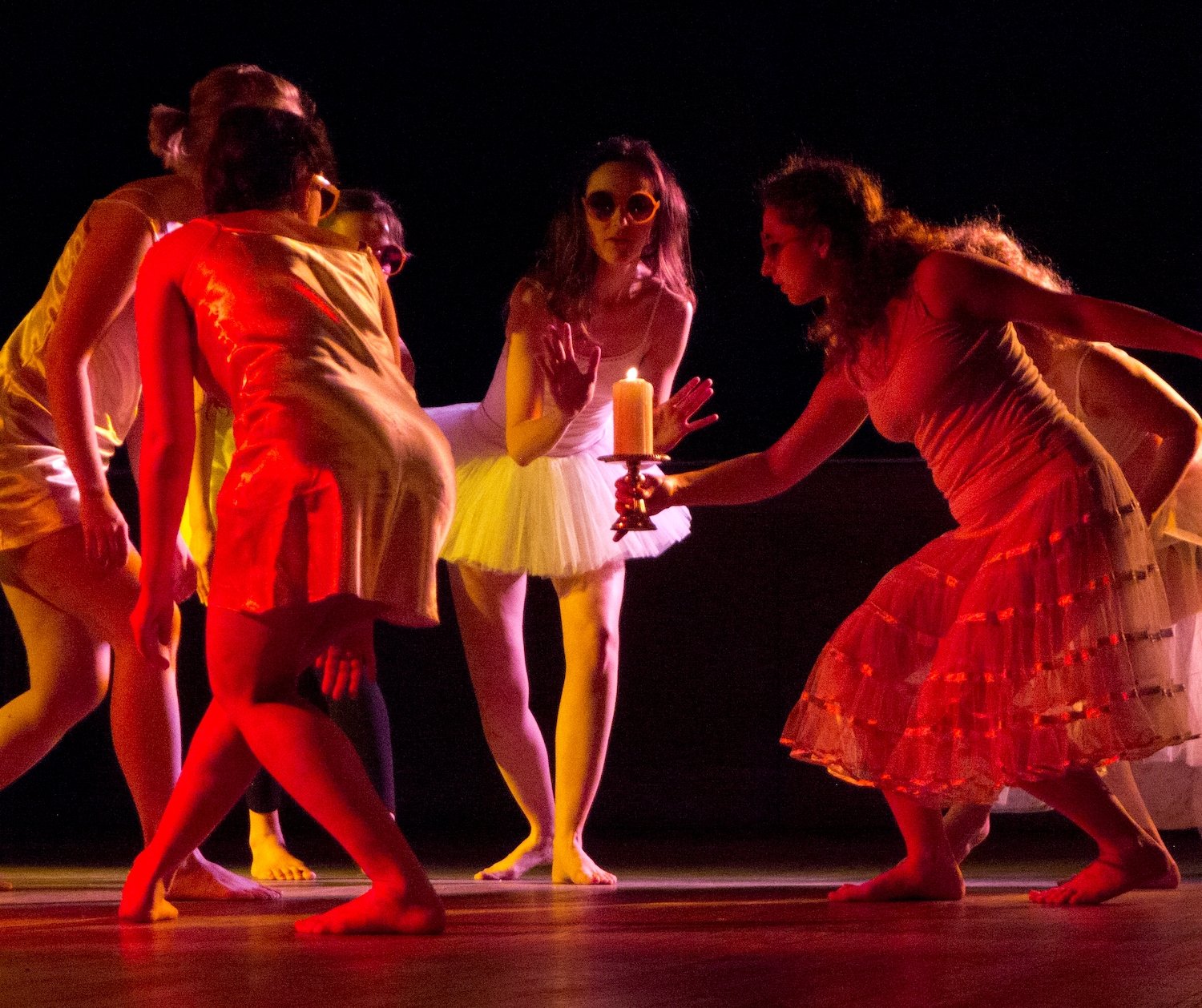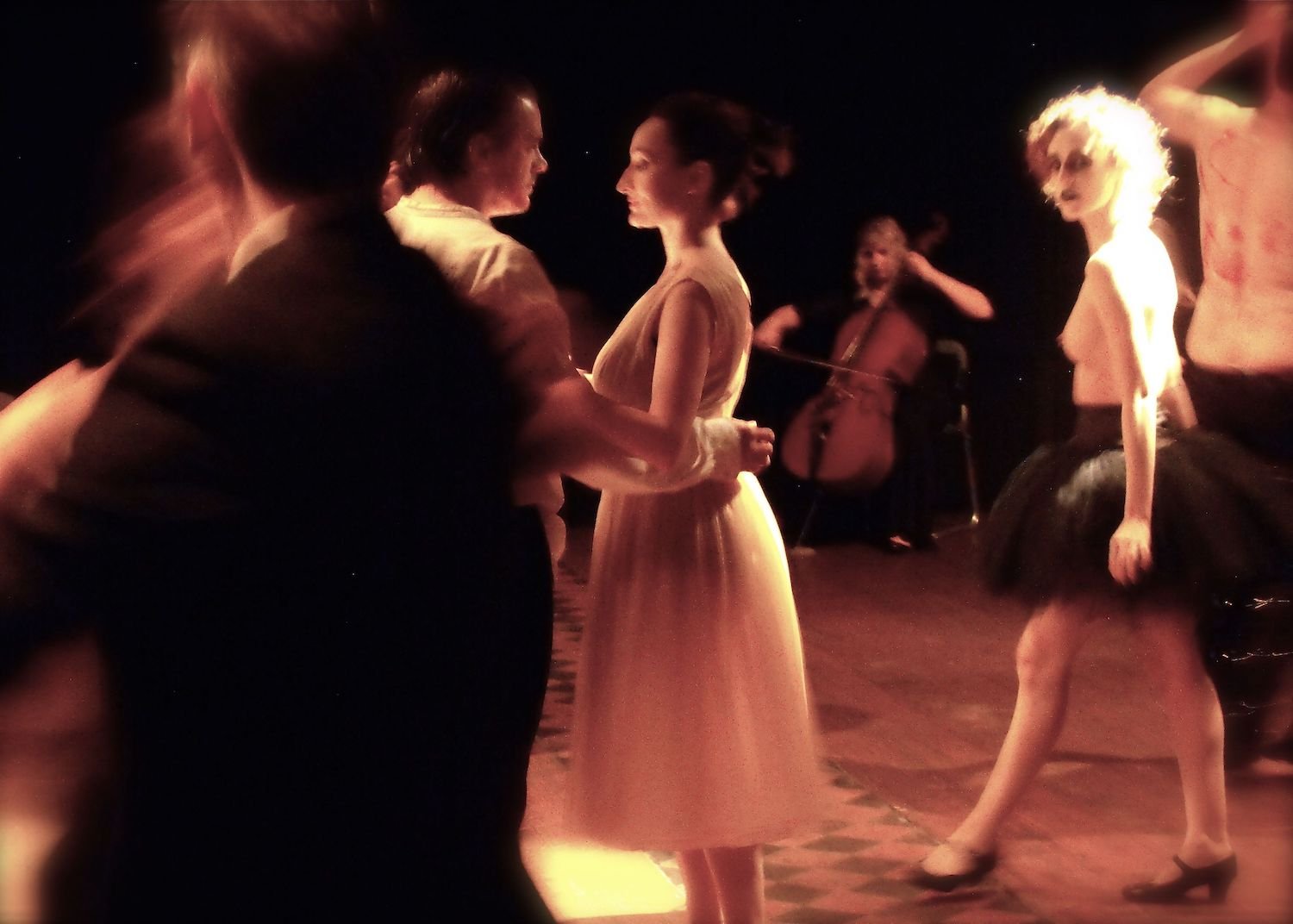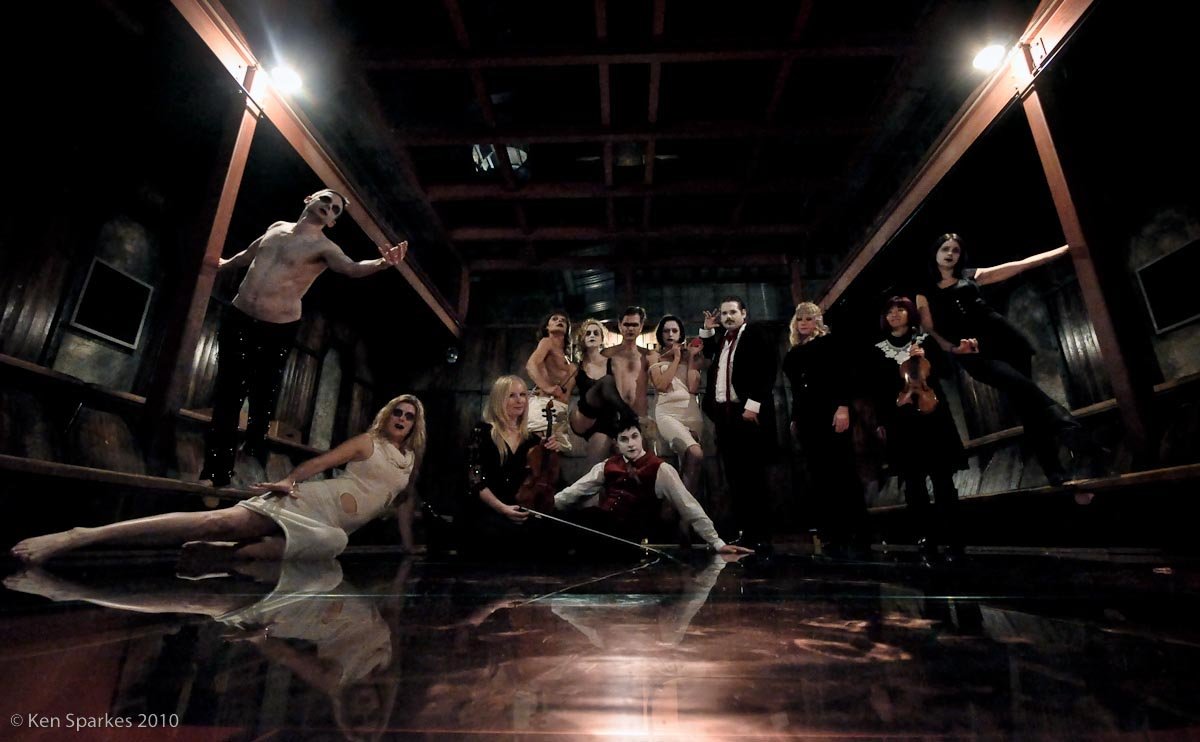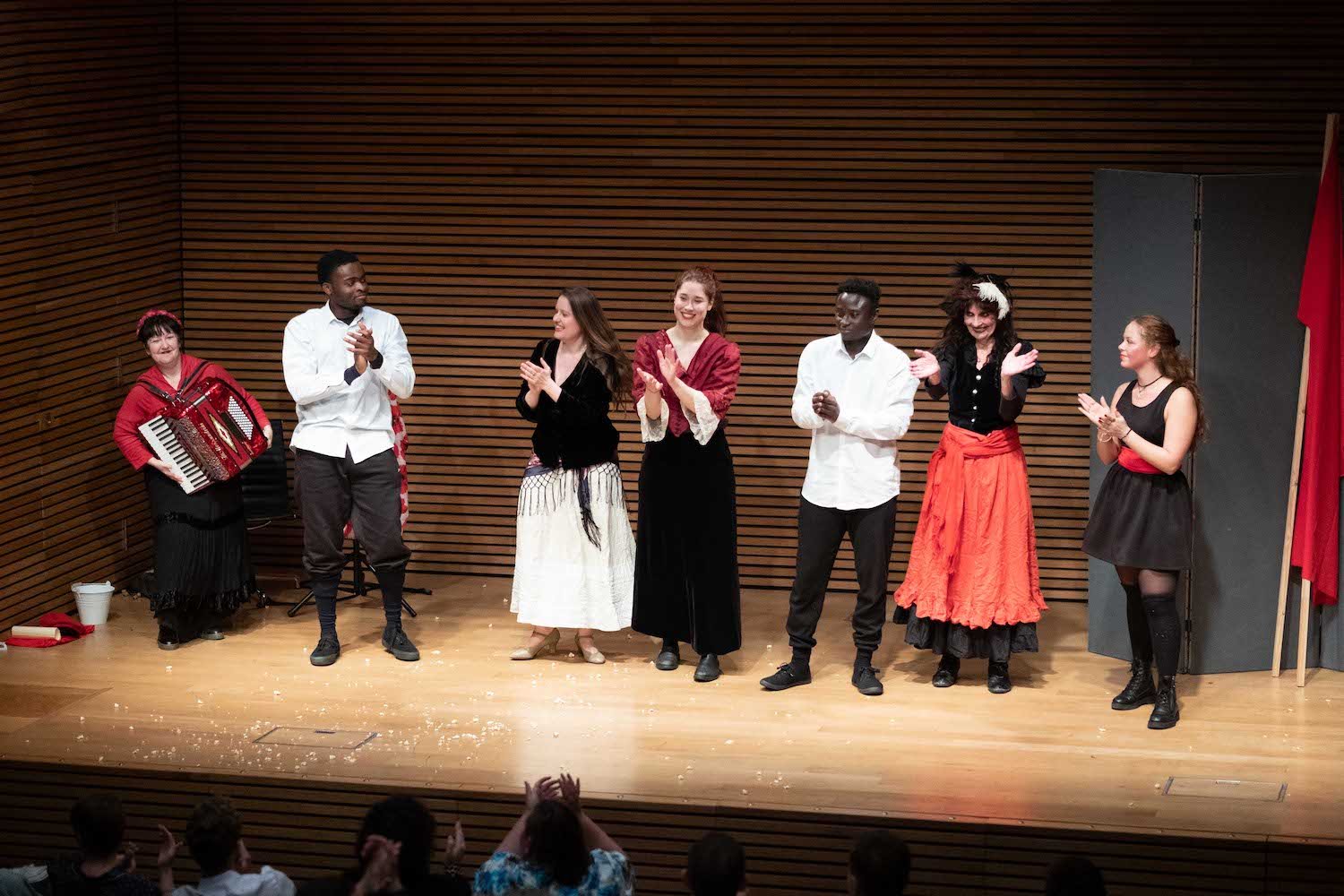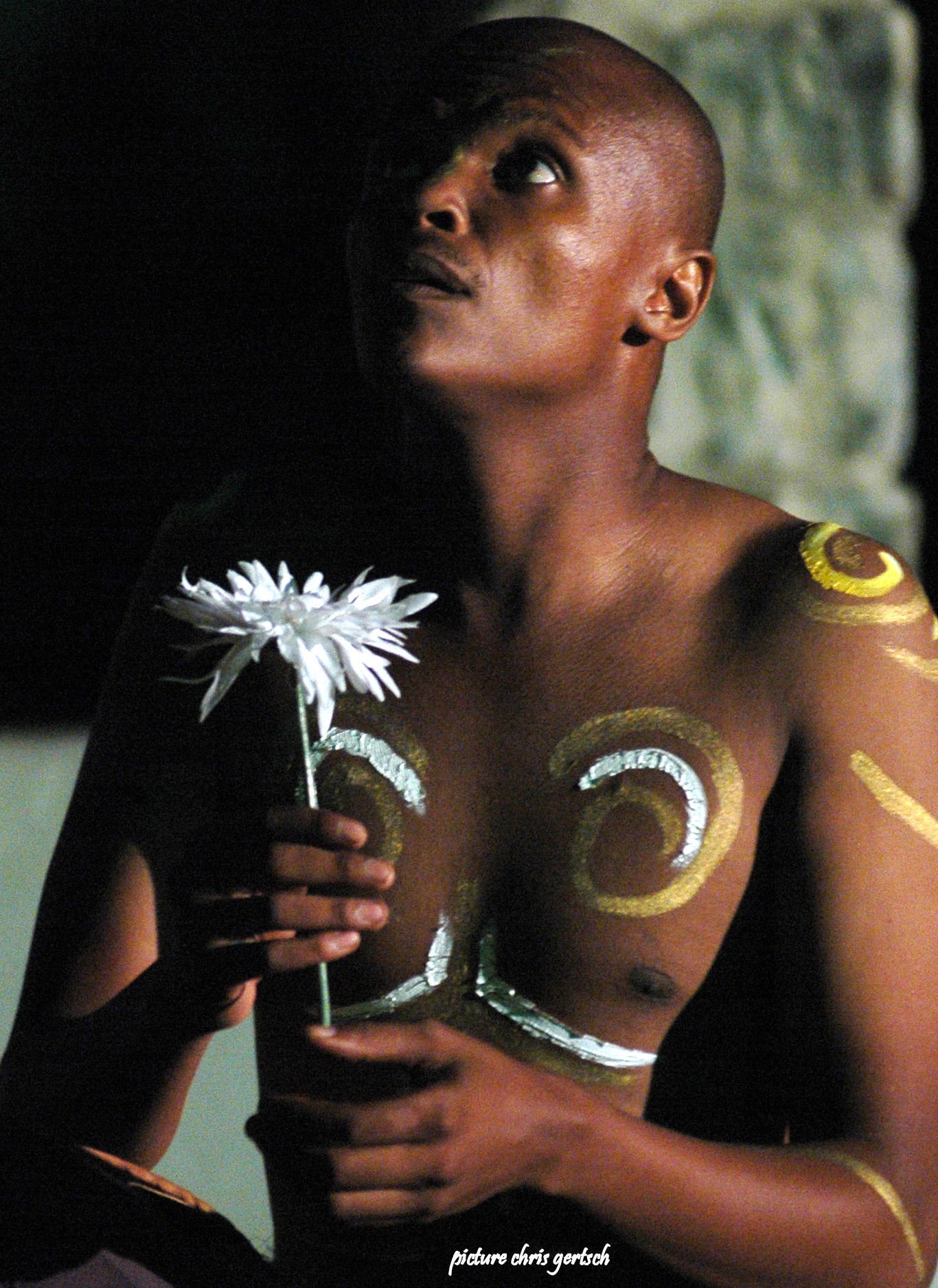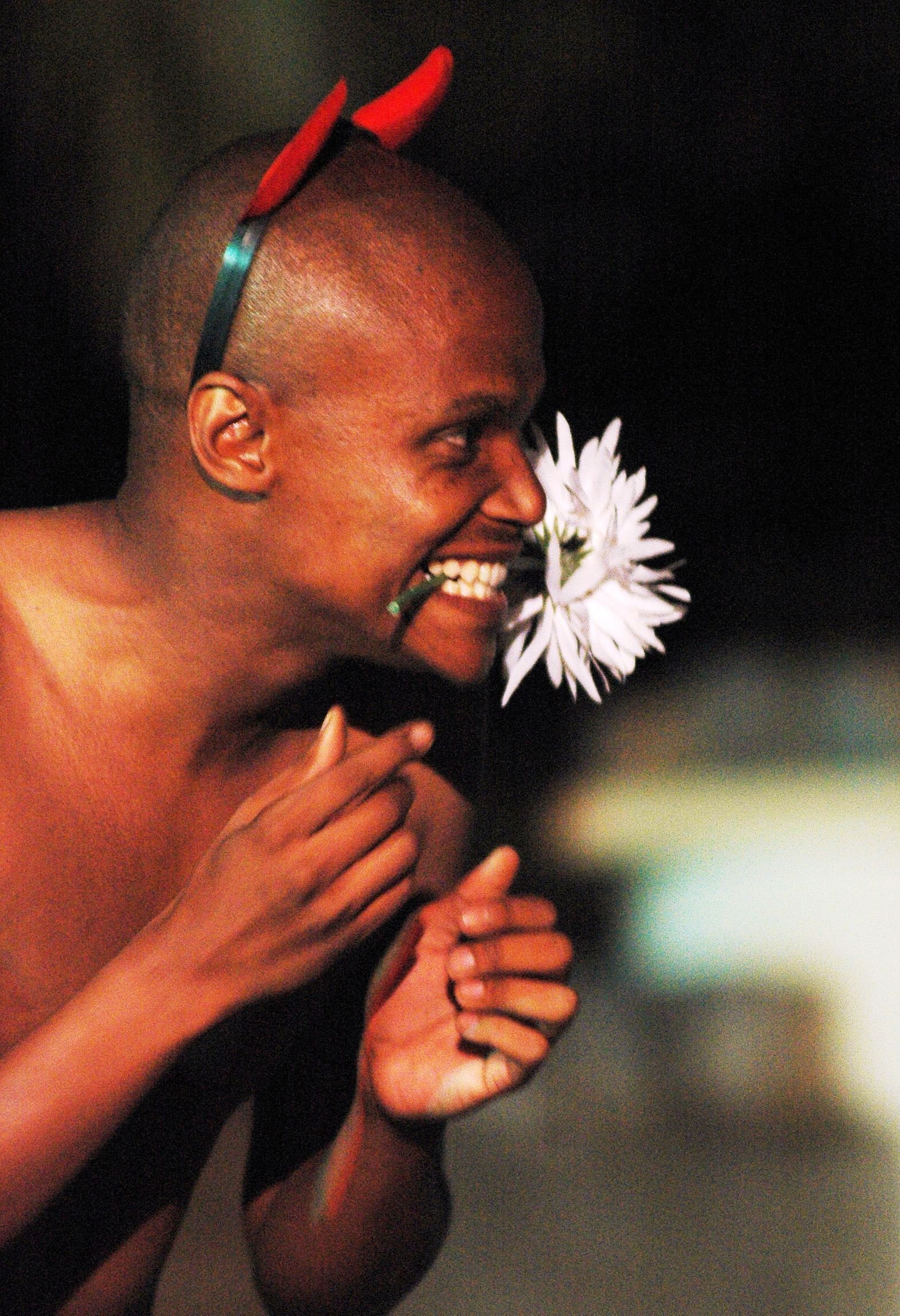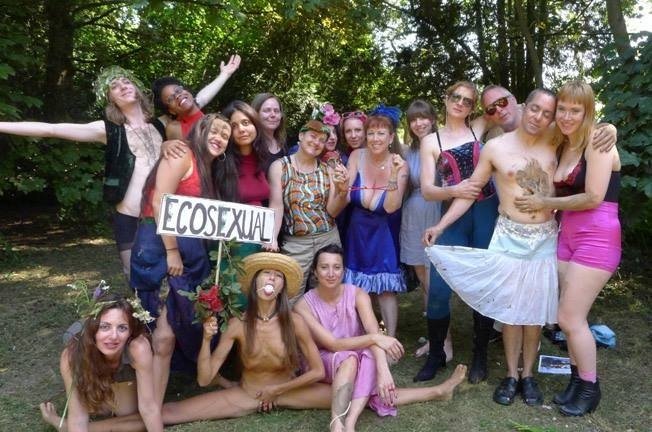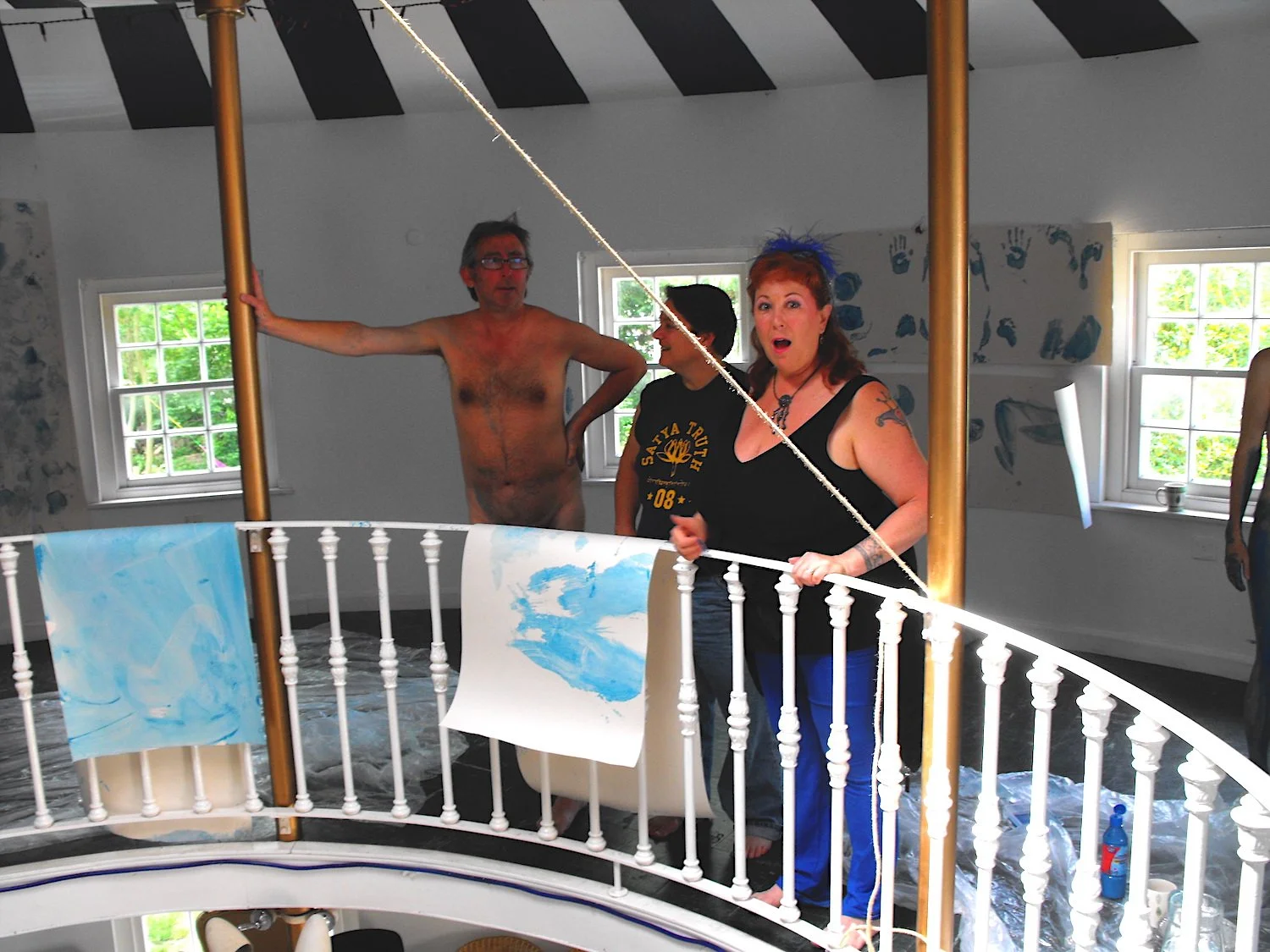Dr. Luke Dixon
Nicolás Dumit Estevez Raful Espejo Ovalles: Luke, we met through Beth Stephens and Annie Sprinkle in Colchester, not too far from London. The three of you were facilitating The First International Ecosex Symposium. I really relish this time together with the most unusual group of creative beings. Any memories or impressions?
Luke Dixon: It was the most wonderful of experiences, in a very quiet, rather conservative part of England, that embraced the radical ideas of the workshop. We created, experimented, cooked, and ate together, worked late into the night, and all as a way of exploring new ways in which as humans and artists we could reimagine our relationship with the planet. It was a wonderful group of people, coming together from all over the world to share and create. And for me it was a delightful opportunity to reconnect with the miraculous Annie and Beth.
NDEREO: I keep telling people about our Tree-somes, when we were gently tied to trees so as to develop intimate connections with them. So much to unEarth regarding this marvelous time in the English countryside. How did you get involved with this?
LD: I had worked with Annie and Beth on previous projects, including producing their Blue Wedding in Oxford, England. We three were keen to do a new project that would be residential, international, and experimental, and explore the potential of the nascent eco-sexual movement that we were pioneering. A friend owned a beautiful hotel in the English countryside outside of Colchester and offered it as a base, and another friend offered the arts center in the city as a venue to showcase any work we produced.
NDEREO: I will always remember the older woman, very proper, who showed up to the clothing optional first day at the resort where we were staying. I felt awkward about going natural in front of her and to my surprise, when I turned my face, she was totally nude sipping tea and having a scone in the most English way possible. She wore her skin with such ease! I am wondering what can non-human animals teach many of us about doing away with social trappings.
LD: I remember that well, too. There was something wonderfully liberating about the whole project. Partly that was from the generosity of spirit of Annie and Beth, partly from the openness of all the participants, and partly from the deep engagement of all who were there. There was not a moment of negativity. We were all filled with such hope and optimism, and eager to see, explore and collaborate in each other’s work.
NDEREO: What is ecosexuality in your opinion?
LD: It is a way of re-imagining relationships as humans (forgive the word) with the planet we live on and the other living beings that we share it with. For millennia we creatures have exploited and destroyed the planet for out own selfish uses, while other creatures have lived in harmony and balance with it. We have looked to Mother Nature as a provider and sucked her breasts dry. As ecosexuals we have to learn to think of Lover Nature and live in a loving, co-nurturing, harmony; and as artists, creatives, to find ways of expressing and sharing that through our practice.
NDEREO: You are a beekeeper who cares for bees on the rooftops of London. How did become interested and involved in this?
LD: It began as an escape from performance. I realized that I was spending far too much of my life cooped up in darkened rooms creating performance and that this was disconnecting me from the wild, open, natural world.
NDEREO: So many of us have been taking bees for granted. How would a world without those busy beings look? Perhaps I do not even want to imagine this. But do tell me as I think that it is important to know and face the truth.
LD: It would be a world bleak and unimaginable. Bees have been on our planet for something like 130 million years, as long as the first flowering plants. Flowering plants are dependent on flying insects for pollination and flying insects are dependent on the nectar and pollen in flowers for food, so the two must have evolved side by side. Honey bees, the hardest working creatures on the planet, now live check by jowl with people and we are mutually dependent. Without the bees we would have a seriously reduced diet, and live in a world without most of the trees and flowers around us. They deserve our respect and support.
NDEREO: Your bee-sy (as in busy) persona is involved in various programs, fields and events. One of your areas of expertise is theater. Can you tell me about this?
LD: My life has been one of creating, directing, teaching, writing, running workshops, in what can be called theatre, or more broadly performance. I’ve long had an interest in community-based work, bringing professional artists together with specific communities, often in a locality or of like-minded people, to inspire, educate, learn, and create, using the collective as an instrument of creativity. My work has taken me around the world, and I have been blessed to collaborate with wonderful people in every continent and in so many situations – from high-end arts centers in the Rock Mountains to South African townships and war-torn refugee camps.
NDEREO: Gardens are also a key element/expression in your day-to-day, and you combine gardening with social activism. Can you share one of your undertakings in the green realm?
LD: I am working with a small environmental charity, The Bee Friendly Trust, with a mission to make the world more pollinator friendly. We especially work in the inner city, creating gardens, building planters full of pollinator rich flowers. We have a wildlife garden in the heart of London which is an oasis not just for wildlife of every sort, but for children and young people too who might otherwise have little of no contact with the natural world.
NDEREO: Going back to bees, how is their social life?
LD: They have got it sorted! Fifty to seventy thousand creatures living in one community – the hive–and all working for the common good. It is a matriarchy though in a binary bee world, so perhaps we can learn something from them.
NDEREO: Staying with bees. Beth and Annie are such a good example of these creatures. Always busy (bee-sy) in good and meaningful ways, and always connecting with others and connecting others to others. I met them through Linda Mary Montano and I met you through them. I am grateful for their kindness and generosity. It is real. No question, and listening to what you may want to say…
LD: They are truly special, my dear Nicolás, and I am so grateful to them for having met you. And of course, the astonishing, remarkable Linda Mary Montano. The world is so much better a place for having them in it. Their energy, enthusiasm, positivity is a beacon of hope for us all. They are indefatigable.
NDEREO: I could keep talking with you and, I know that time is life…although life is unmeasurable and is not framed by chronological time. Down with all clocks and watches! Anything else that you would like to add or say?
LD: Just to thank you for this opportunity to communicate, and to say how much I admire The Interior Beauty Salon.
NDEREO: Thank you, dear Luke. I hope to see you and our virtual group in London– the group that has been meeting for over a year during Covid. Perhaps we can meet in person and rekindle the essence of ecosexuality out in the open.
LD: Me too. One of the benefits of the Covid lockdown is that we were able to find new ways of communicating and creating around the world and with no air miles involved. Our group has been a stimulus and solace to all of us who were part of it. I so look forward to seeing its next manifestations. And to seeing you in person once again. Soon.
Dr. LUKE DIXON is a theatre director, producer, teacher and academic, internationally known for his innovative productions of Shakespeare, his site-specific performances, his teaching of actors and his research into performance.
As a director his work includes Love and the Revolution with the Berliner Ensemble, The Golem with Theater Brostowska in Prague and Bratislava, Age of the Saints in Dublin, the British tour of Noël Coward’s Brief Encounter, Fanny Hill in the West End of London and UK productions of Jonson’s Bartholomew Fair, Wilde’s Salomé, Marlowe’s Doctor Faustus, and the musicals Jesus Christ Superstar, Oliver, and Blood Brothers. Luke has also been closely involved in the rise of neo-Burlesque.
His site-specific work has included the devised pieces Singing the Body Electric (Serpentine Gallery), It’s a Wonderful Life (Marylebone Station) and Bleu (Rotunda Oxford).
His productions for theatre nomad, of which he is Artistic Director, have included Macbeth, Miss Julie, Duke Bluebeard’s Castle, A Midsummer Night’s Dream, The Tempest, Hamlet, Twelfth Night, Survivors, As You Like It, At Break of Day and Pericles. These productions have been seen in China, North America, South Africa, Germany, France, Poland, Russia, Czech and Slovak Republics, Spain and the UK.
Luke’s academic and teaching work has included Senior Lecturer at Nelson Mandela Metropolitan University South Africa, Senior Lecturer at Middlesex University, Visiting Lecturer at UFRGE (University of Porto Alegre) Brazil, Dalhousie University Canada, Institute of American Indian Arts and the College of Santa Fe in the US. He has led residencies at The Banff Centre Canada, run workshops around the world, taught widely in the London drama schools and colleges and was Founder Director of The London School of Musical Theatre. He teaches regularly at London’s Actors Centre.
Has published regularly on performance, has done much arts journalism and was for some years a contributing editor to the journal Performance. Luke’s book, PLAY-ACTING, a guide to theatre workshops is published by Methuen in the UK and by Routledge New York in the US and is a widely used text in drama schools. His four books of Shakespeare’s Monologues are published by Nick Hern Books.
From 2002 to 2009 Luke was Artistic Director of the International Workshop Festival bringing leading theatre practitioners from around the world to the UK to run workshops, give performances and demonstrations and create work. Highlights of recent festivals have included Kwoto, a group of young actors from the Displaced Peoples Camps of Khartoum; Falos & Stercus, the Brazilian fetish circus; from Finland, the fire performance collective Flamma; Yoshi Oida one of Peter Brook’s company, Lev Dodin from the Maly Theatre St. Petersburg and Annie Sprinkle.
Current practice and research interests include the performer’s relationship with space, eroticism and performance, and the psychology of acting. With Annie Sprinkle and Elizabeth Stephens, he organised the 1st International Ecosex Symposium in France & UK in 2013 and collaborated on the symposiums at UCLA Santa Cruz in 2017 and 2022.
Luke Dixon / Related links: Website / IG / email / Amazon / Theatre Nomad
Images above courtesy of Luke Dixon
